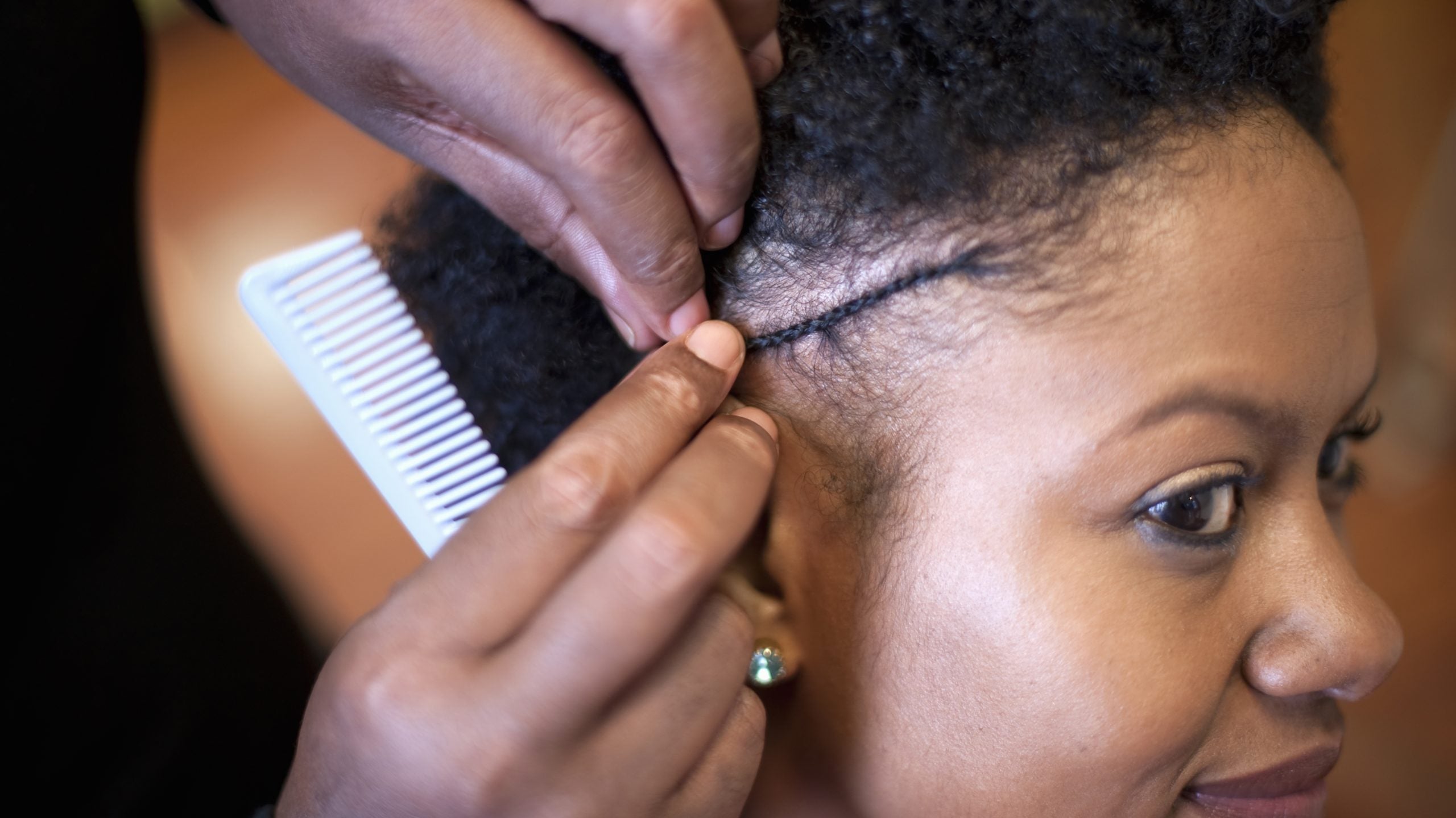If you know anything about people from Detroit then you know that they’re tough, they’re innovative, and they can pivot to adapt to almost anything. That’s exactly what hairstylist Niani Barracks, more widely known as Niani B.,did when the COVID-19 pandemic put the salon where she works, and her livelihood on pause. She took an in-person class idea and translated it into a digital safe space that has become a haven for Black women to learn to braid with no judgement.
“I get a lot of moms who don’t necessarily want to pay for their children to get their hair done, but they don’t know how to do it,” she tells ESSENCE. “They don’t understand natural hair care. They don’t understand how to braid, how to twist, how to keep it healthy and look good without straightening it or doing something else that might be harmful. So I had this vision to teach a class.”
But that vision quickly took a setback when the coronavirus pandemic caused a statewide shutdown just days before her class was due to launch. With a need to continue to provide for her family, and also service her clientele (who were still sending hair appointment requests), she immediately came up with the idea to set up the class as virtual sessions.
The Friday after the governor of Michigan officially called a stay-at-home order, she solidified the idea. By Monday she put up the Facebook group and A Safe Space For Black Girls Who Never Learned How to Braid was born.
As someone who learned to cornrow on herself at the age of 12 using a book borrowed from a friend, she understands the importance of knowing how to execute the culturally significant style. She also understands the feelings of shame and guilt that Black women can feel when they don’t know how to braid by a certain age. Those jokes about “revoking her Black card” might seem harmless on the surface, but the issue can go deeper than just jokes—especially when women have children.
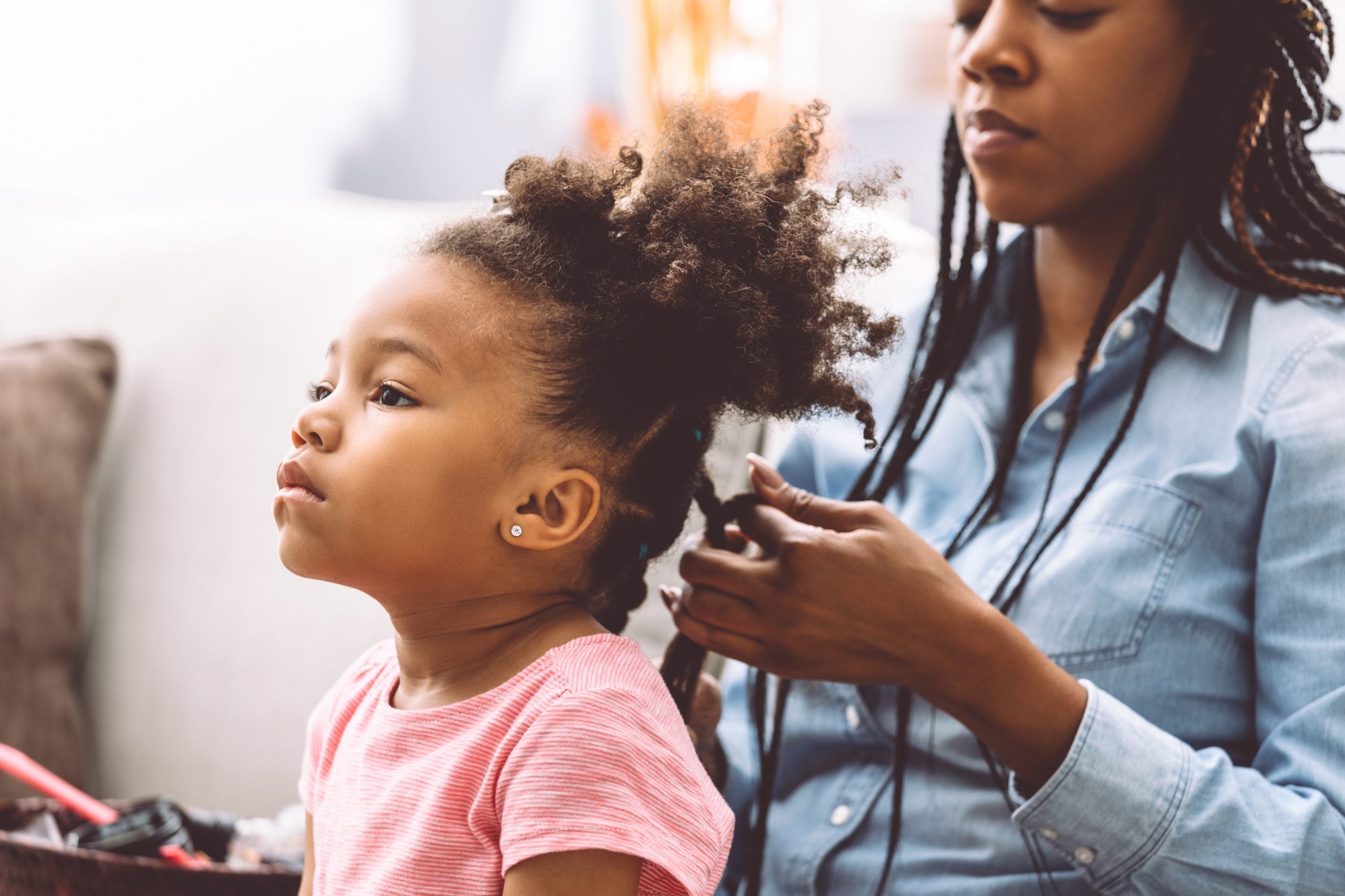
“I don’t want anybody to feel like in order to be Black, you have to know how to braid, but it is a cool skill. It’s definitely a part of our culture, and everyone should have the opportunity to learn,” says the 31-year-old entrepreneur. “And a lot of women are just saying how they’ve always felt bad or felt ashamed that they didn’t understand their hair, or didn’t know how to do their hair. I had moms in the group who just wanted the opportunity to bond with their children, and do their hair. We have artwork with the different generations styling each other’s hair, and they just want to feel that bond, and feel that special moment. So that just made me feel so good that I could support them on that.”
For only $5 a class Black women and girls from all over can learn proper parting, basic plaiting, and how to execute cornrows ranging from basic to styles with intricate details. The one-hour classes are held twice a week, Thursday at 9pm and Saturday at 1pm. Because the sessions are on Facebook Live, they’re interactive, where Niani reads questions from students and responds in real time. And the vibe is positive and inviting in this judgement free zone where Black women can support and encourage each other.
“I don’t want to leave anybody out, but this space is specifically for that girl; Black girls that did not learn how to braid,” Niani says. “I have hairdressers in Ireland, moms who have mixed kids, or White families with adopted African children [asking to join].”
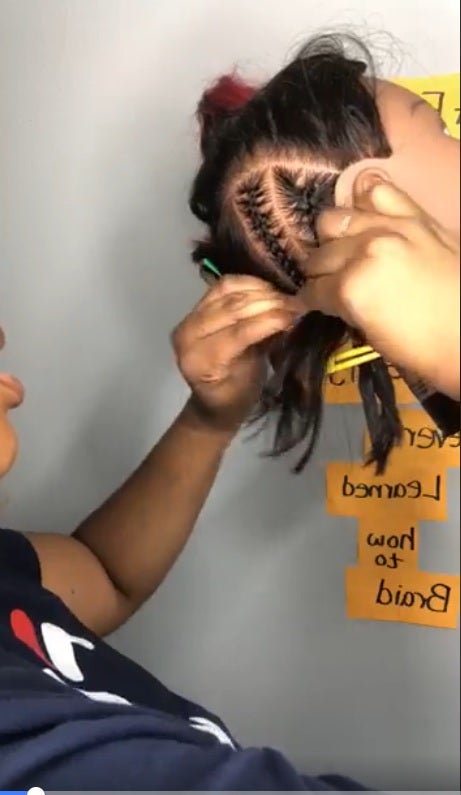
“But my goal, my vision, was to keep this safe space for Black girls. And when you start inviting neighbors to the party, you have to change all the language. I might have to teach differently because teaching a Black girl how to braid, or how to care for their natural hair, they know what it feels like. They live with it every day. They just might not have the techniques. That’s completely different than explaining to somebody who does not have textured hair how care for somebody else’s textured hair and what to look for, because their experience is different.”
After a write-up in the New York Times, her social media following grew exponentially, and so did requests for entry into Safe Space. Understanding that a mixed group might not be on the same page about edges, kitchens, and where to buy the right hair gels, Niani created an entirely different class for supporters.
“I felt like I still needed to help those little Black girls who don’t have somebody in their family or immediate circle that can help them take care of their hair, and can’t learn from a YouTube video,” she says.
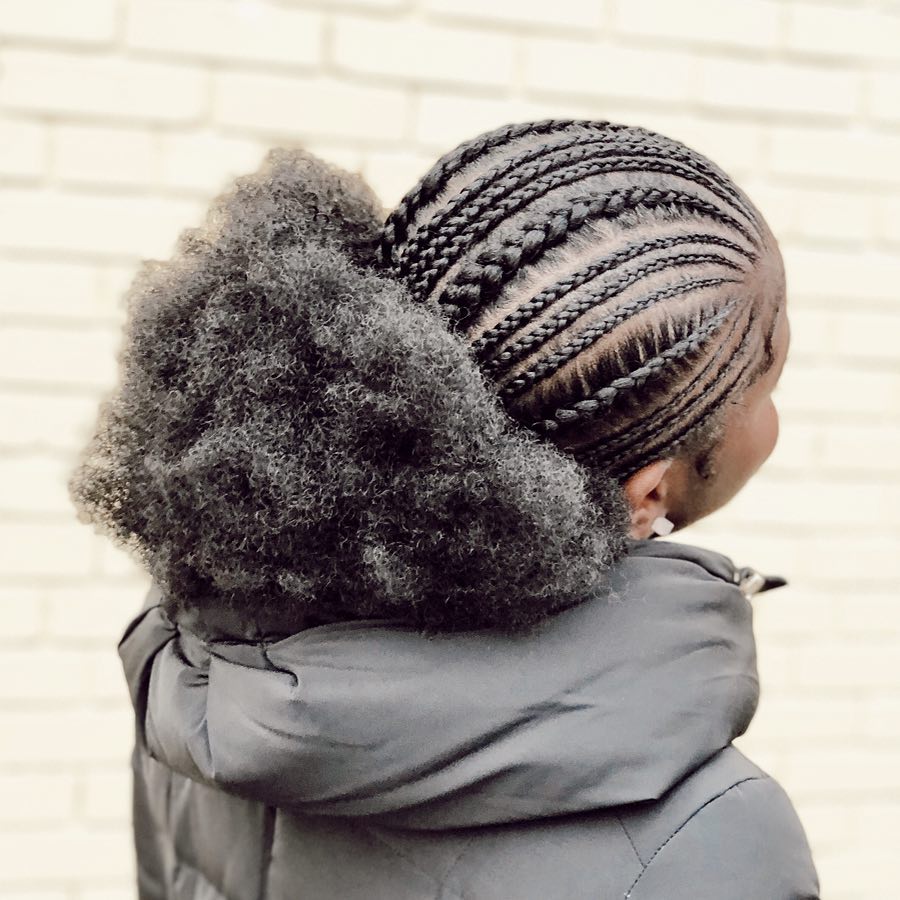
So non-Black girls can go to her website and sign up for the class specifically for “supporters of Black girls who want a supportive environment to learn about natural hair without judgement, while learning to care for the hair of the girls they love.” It offers the same safe space and skills in a live interactive session.
On a personal note, I took the class this past weekend because I too am one of those Black girls who never learned to braid, and I too held a lot of shame about it. I was feeling it even more now because of my desire to cornrow my hair in order to leave it alone for two weeks during this quarantine. So I logged on, prepared with only a kinky-straight lace frontal from a previous Mayvenn hair install, some clips, a detangling comb and a desire to learn.
Surprisingly, I had the cornrow technique down by the second braid (caveat: I had basic plaiting and underbraiding skills already. My brain was just computing cornrows very differently). Someone finally explained the technique and finger placements in a way that made sense for me. Now, I’m ordering a mannequin head so that I can continue to practice my basic cornrows and learn new styles in class every week even after we’re allowed to go outside.
As for Niani, I asked if she’s thought about what this looks like post-quarantine. And for students who are worried that the classes will go away once the social distancing orders are lifted, the mom of two assured me that she intends to continue the virtual sessions.
She’s even toying with the idea of hosting Zoom follow ups so that she can see what her students are doing so she can give feedback and make corrections to their techniques in real time.
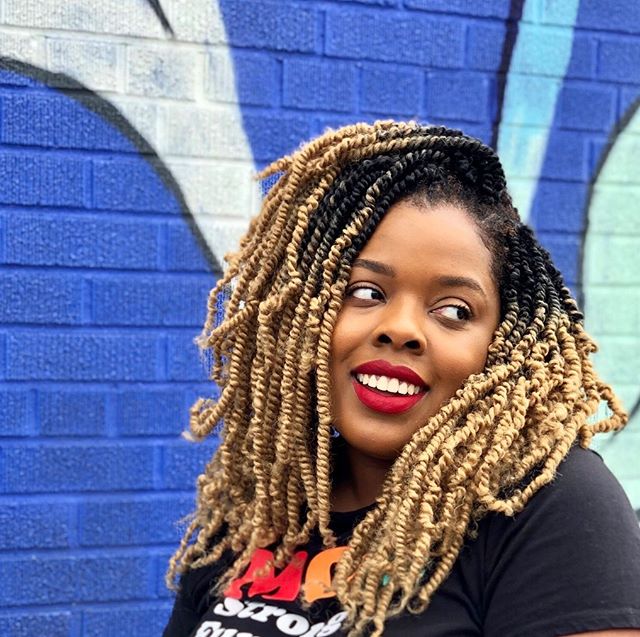
“I hope that it continues to grow after this has passed,” she concludes. “I’ve gotten tons of messages, tons of DMs of people thanking me and saying that I’m God sent and I’ve answered their prayers. And I never expected that. I didn’t realize how many people were actually interested in learning and how deep this was. They feel like it’s a part of our culture. It is a part of our culture. It’s bigger than just learning how to braid.”
